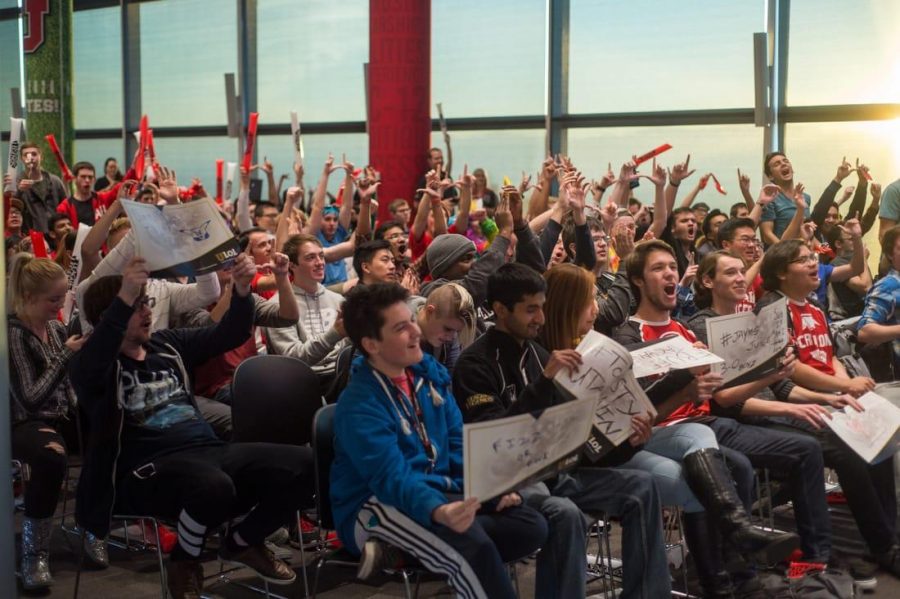College sports are changing with the times — the field is no longer limited to athletics. Professional esports, a competition that is essentially competitive videogaming, are part of a new wave of entertainment that is hitting the mainstream. On Wednesday, the University of Utah announced that they are creating the first Varsity League of Legends team in the Power Five conferences — Pac-12, Big Ten, Big 12, Atlantic Coast and Southeastern.
Esports are currently one of the fastest growing entertainment trends. The 2015 international League of Legends World Championship peak viewer count hit around 14 million, and total viewer count was 36 million, which is nearly one third of the audience of the 2015 Super Bowl, that attracted about 114.4 million viewers. For the overall esports championships, total view count reached a staggering 360 million.
“Esports has had a dramatic rise in popularity in the U.S. over the last few years — especially on college campuses,” said A.J. Dimick, head of the new esports team, in a press release. “We think college esports is a great opportunity and we want our students to be part of it.”
The massive entertainment genre is only growing in prestige and popularity, and it shows no signs of stopping. Games are being added on a yearly basis to organized esports. Although the U’s first team will only compete in League of Legends, the program is looking to expand to other popular games, which could include Overwatch, DOTA 2, Hearthstone, CS:GO and StarCraft 2.
The new program presents students at the U with the first official opportunity to take part in a school-sponsored esports. Until now, local players have had to rely on student groups like Crimson Gaming to take part in esports activities. While the move was spearheaded by the U’s Entertainment Arts and Engineering (EAE) videogame development program, the involvement of groups like Crimson Gaming, as well as assistance from school administration, was integral in creating the new team.
“EAE is proud to elevate competitive gaming at the U,” said Robert Kessler, director of EAE. “We think it is a great opportunity for our students, the vibrant gaming community here on campus and Utah fans, in general, to come together and watch these players hone their skills and play competitively to represent our school.”
Students say that the U has done an excellent job in creating a safe and supportive environment for esports-driven clubs in the past, but the official support offered by the new program will drive the talents and abilities of local esports contenders to new heights.
Dimick hopes the new collegiate team will kickstart all Power Five schools to form their own university-sponsored teams.
“It is important for big colleges and their administrations to jump in,” said Dimick. “We hope to encourage that.”


